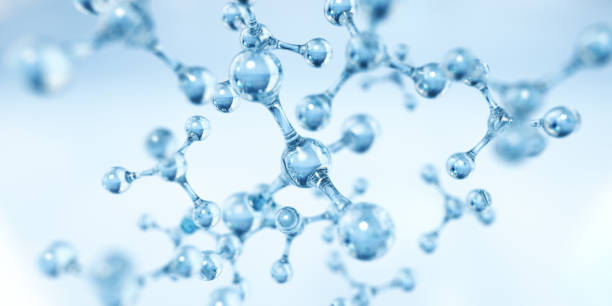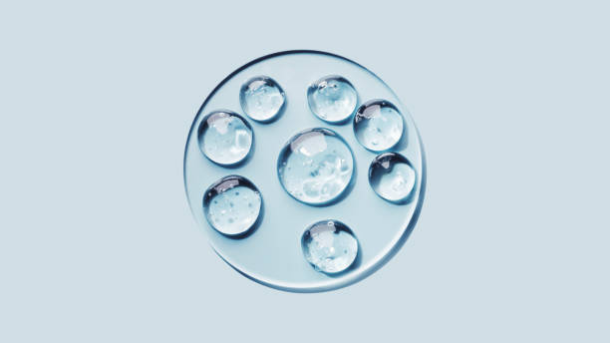Hyaluronic acid has been a buzzword in the skincare industry for years, with a reputation as a miracle moisturizer. But what’s the hype all about? Hyaluronic acid is a naturally occurring substance in the body that retains moisture, supports tissue repair, and aids in the overall health and elasticity of the skin. Its ability to hold up to 1,000 times its weight in water makes it a crucial ingredient for hydration and rejuvenation. From serums to supplements, hyaluronic acid promises plump, dewy, and youthful skin, which explains its growing popularity not just among beauty gurus, but anyone seeking a healthy complexion.
Understanding Hyaluronic Acid and its Functions
Though it sounds like a harsh chemical, hyaluronic acid is actually gentle and nourishing. It’s found in every single cell in the body, but its highest concentrations are in the connective tissues, such as skin and cartilage. Hyaluronic acid serves multiple purposes:
- Moisture Retention: It maintains skin hydration by binding water to collagen, trapping it in the skin.
- Healing: It’s essential in tissue regeneration and wound healing.
- Lubrication: It lubricates the joints, reducing the risk of joint pain and disorders.
- Anti-aging: By helping to maintain elasticity, it keeps the skin looking firm and youthful.
Age and environmental factors can diminish the body’s natural supply of hyaluronic acid, leading to drier skin and the appearance of wrinkles, which is why supplemental forms have become so popular.
The Various Forms of Hyaluronic Acid
Hyaluronic acid comes in several forms, each suited to different needs and preferences:
- Topical treatments: Available as serums, creams, and lotions, these are commonly used for immediate hydration and are applied directly onto the skin.
- Injectable fillers: These are administered by medical professionals and are used to reduce the appearance of wrinkles and to add volume to the face.
- Oral supplements: Coming in pill or liquid form, supplements can support overall skin health and joint function.
- Dermal patches: These targeted treatments offer direct hyaluronic acid delivery to areas that need it the most like under the eye.
Choosing the right form of hyaluronic acid depends on an individual’s skincare goals, budget, and personal preference.
The Impact on Skin Health and Appearance
The potential benefits of hyaluronic acid on skin health and appearance can’t be overstated. Regular use of hyaluronic acid-containing products can lead to:
- Reduced appearance of fine lines and wrinkles
- Improved skin texture and reduced roughness
- Better skin elasticity and firmness
- A more radiant and hydrated complexion
- Healing of wounds and reduction in scarring
Moreover, because of its gentle nature, it’s often suitable for sensitive skin and can be combined with other skin care ingredients for added benefits.

How to Incorporate Hyaluronic Acid Into Your Routine
Incorporating hyaluronic acid into your skincare routine is simple and can be done in a few steps:
- Cleanse: Start with a clean face, removing oils and dirt that can prevent absorption.
- Tone: Apply toner to balance pH and remove any remaining impurities.
- Apply Hyaluronic Acid: While the skin is still damp, apply a hyaluronic acid serum for maximum absorption. A little goes a long way.
- Moisturize: Seal in the hyaluronic acid with a quality moisturizer, especially if your skin is dry or it’s a cold, windy day.
- Sun Protection: Finish with sunscreen to protect your skin from UV damage which can degrade hyaluronic acid.
By following these steps, not only do you maximize the efficacy of hyaluronic acid, but you also build a strong foundation for your overall skincare regimen.
Innovative Hyaluronic Acid Products and Treatments
As the skincare industry evolves, so do the products and treatments available:
- Cross-Linked Hyaluronic Acid: This modified form has a longer-lasting effect on the skin compared to regular HA.
- Boosters and Injections: These professional treatments can provide more pronounced and immediate results.
- Microneedling with HA: Combining microneedling procedures with hyaluronic acid application can enhance outcomes, as the micro-injuries allow for deeper penetration.
Innovation in delivery systems and formulations continues to make hyaluronic acid more effective and convenient for users looking for cutting-edge skin care solutions.
Conclusion
In summary, the hype around hyaluronic acid is well-founded. Its ability to deeply hydrate, heal, and rejuvenate the skin, alongside its compatibility with other skincare ingredients and procedures, solidifies its essential role in both corrective and preventive skin care. Whether applied topically, taken orally, or administered through more advanced treatments, hyaluronic acid proves to be a versatile ally in the pursuit of youthful, healthy skin. Understanding your skin’s specific needs and incorporating hyaluronic acid accordingly can yield desirable results that speak to why this remarkable molecule has become a staple in skincare regimes around the world.
FAQs
1. Is hyaluronic acid safe for all skin types? Yes, hyaluronic acid is generally safe for all skin types, including sensitive and acne-prone skin, due to its natural occurrence in the body and gentle properties.
2. How often should I use hyaluronic acid? You can use hyaluronic acid products daily. Many skin care professionals recommend using it twice a day, in the morning and evening, as part of your regular routine.
3. Can you use hyaluronic acid with other skincare ingredients? Absolutely, hyaluronic acid pairs well with most other skincare ingredients such as vitamin C, retinols, and SPF.
4. Do hyaluronic acid injections hurt? The discomfort level varies from person to person, but practitioners often use numbing cream to minimize pain during hyaluronic acid filler injections.
5. How long does it take to see results from hyaluronic acid? Topical hyaluronic acid can provide immediate hydration, but it may take several weeks to see visible improvements in skin texture and appearance with consistent use.



